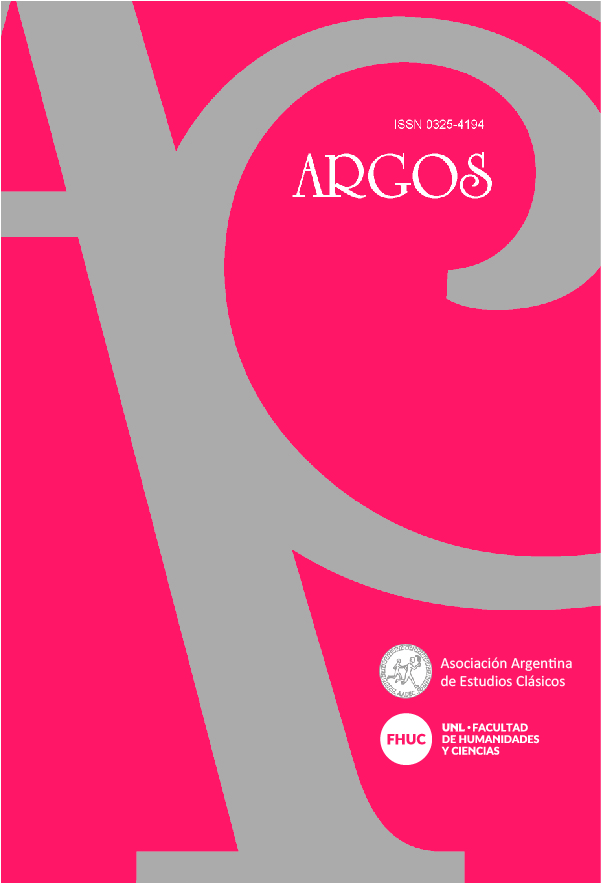The temporal value of the Latin prepositional phrase introduced by cum: an approach from the Generative Lexicon Theory
DOI:
https://doi.org/10.14409/argos.2019.44.e0022Keywords:
Latin, Prepositional phrase, Preposition cum, Temporal value, Generative Lexicon TheoryAbstract
This work seeks to contribute to the description of the Latin prepositional phrase introduced by cum in contexts in which it presents a temporal value. We explore the possibility of applying the model of Pustejovsky's Generative Lexicon Theory (1995) to explain the sublexical features and the generative mechanisms that enable this value in the prepositional phrase. Our analysis argues that the time value is product of the joint action, generated by the co-composition mechanism, of the features [-dynamism], [-orientation] and [+coexistence] of the qualia structure that we present for the preposition cum and the sublexical features of the eventive nouns that the preposition takes as complement.



